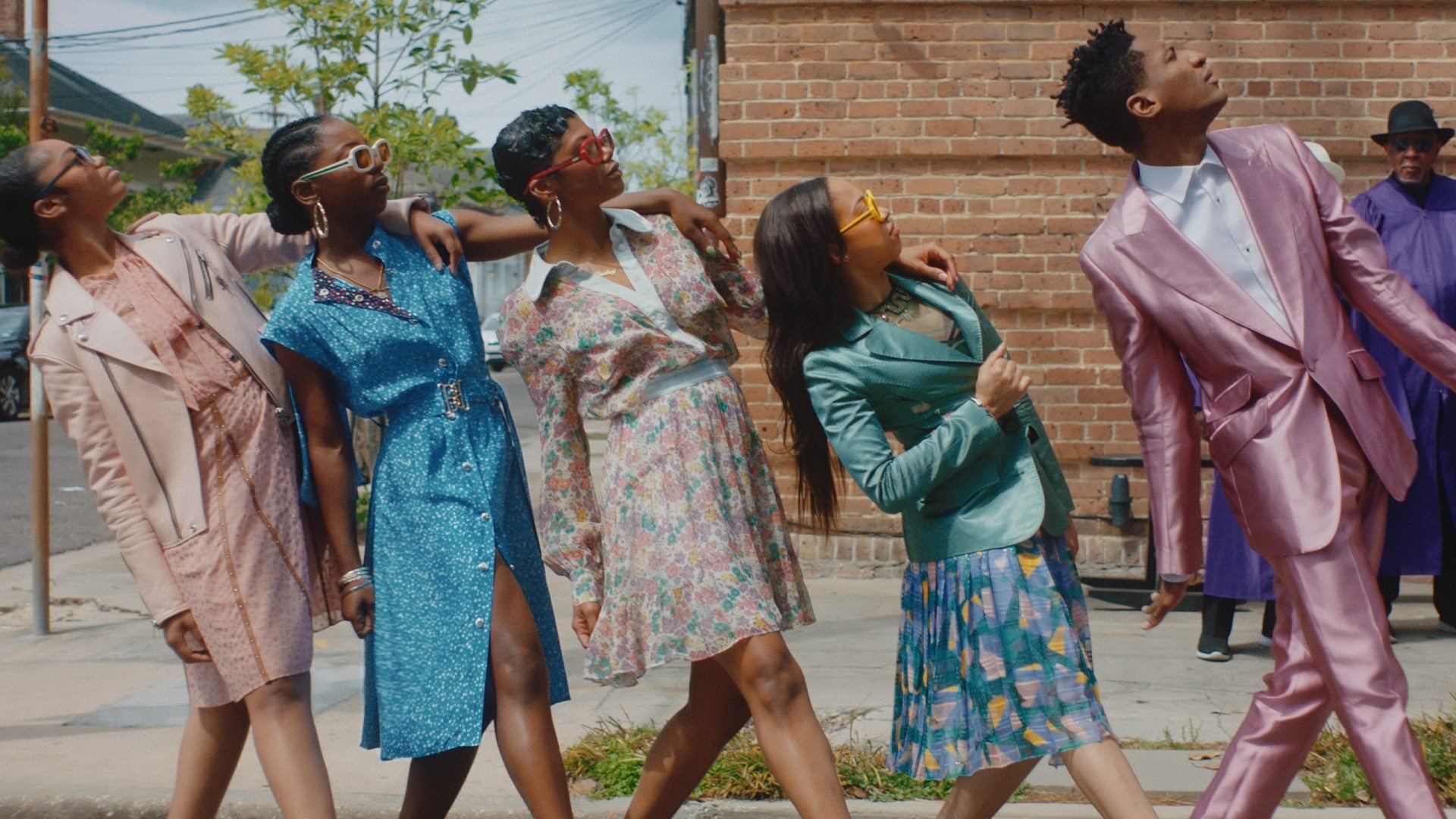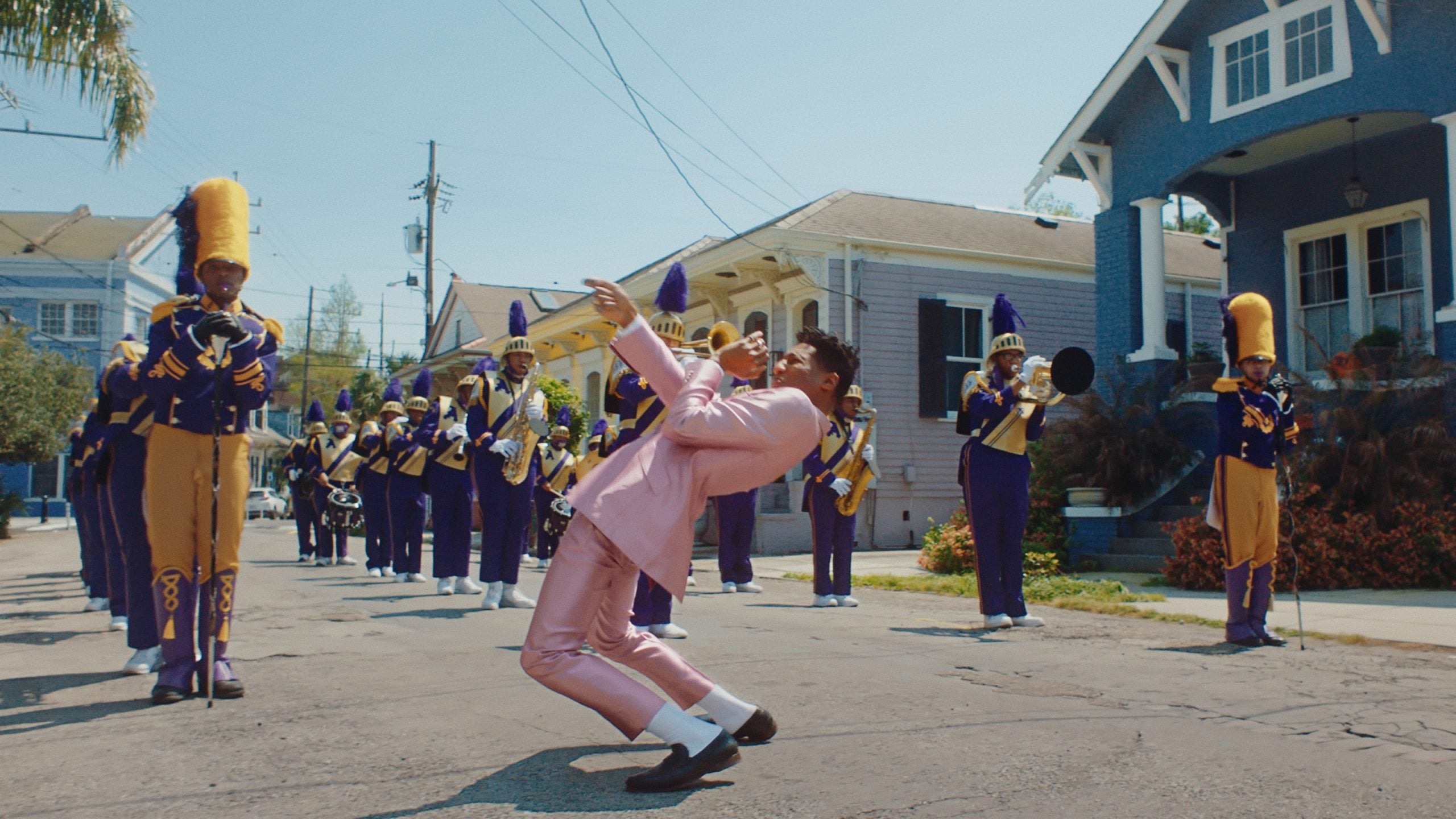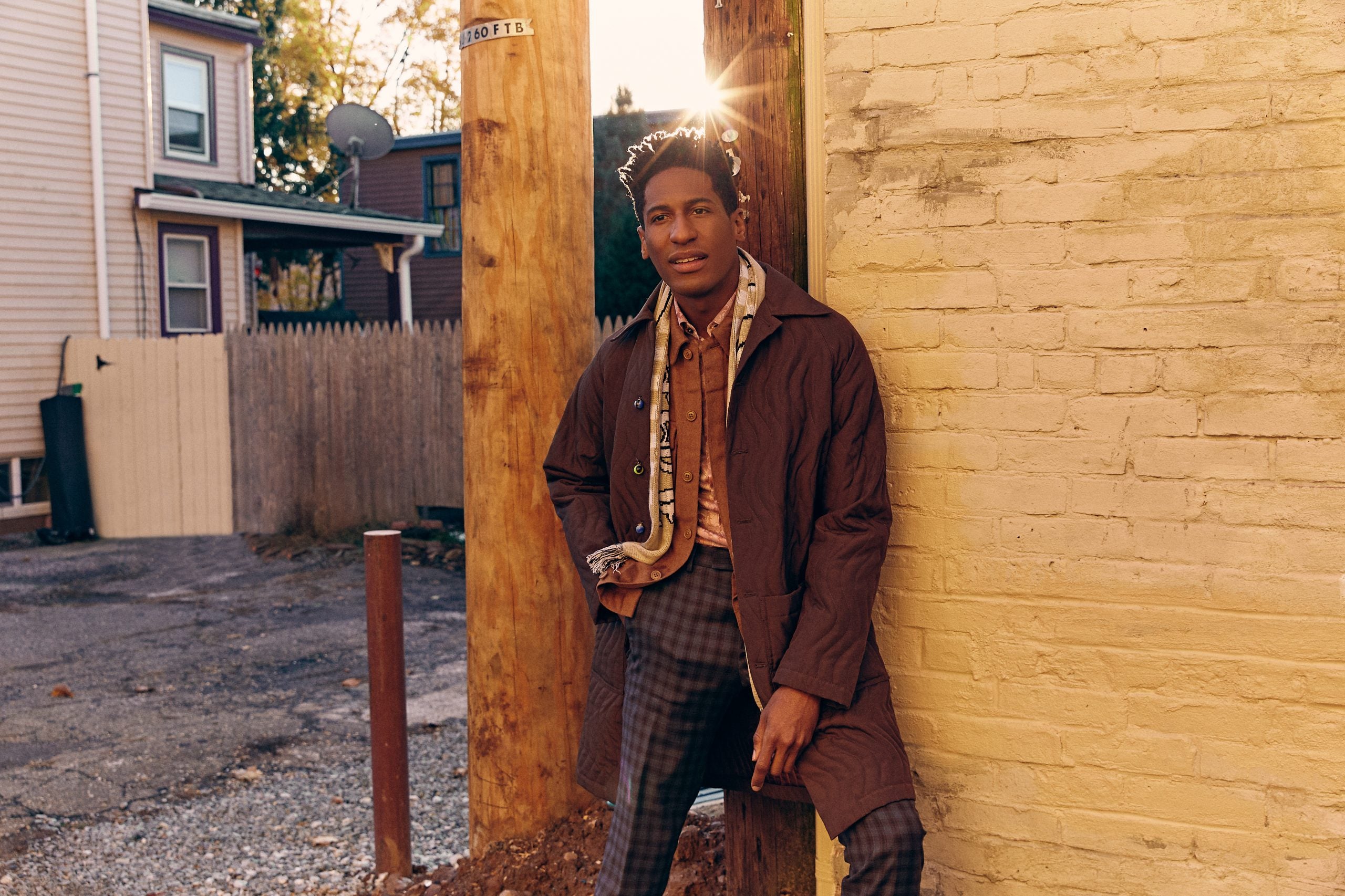
On the night of this year’s Academy Awards, Jon Batiste stood tall at the podium. Wearing a dark blue tuxedo with a pinned floral embellishment, the jazz singer warmly scanned the room. “God gave us 12 notes. It’s the same 12 notes that Duke Ellington had, that Bach had, Nina Simone…”, he recited during the captivating acceptance speech. Alongside fellow composers Trent Reznor and Atticus Ross, Batiste received an Oscar for the musical compositions featured in Disney-Pixar’s Soul. Categorically, the trio won the Academy Award for Best Original Score, a moment Batiste described as surreal.
It was also a monumental occurrence. Batiste became the second Black composer to win the original score award. Remaining on stage with gracious verbalism, Batiste first acknowledged the nominees. He then thanked the academy and voiced his gratitude towards God. Lastly, he mentioned that “this moment is a culmination of a series of miracles.” Forthright and significant, his remarks resonated long after the concluding applause that evening.

Born into a family of musicians, Batiste is an instinctive artist. His lineage runs deep, rooted in jazz, funk, soul, and the blues “I think it’s important to hold on to your tradition, your culture, and where you come from,” Batiste explained.
Based in New Orleans, the Batiste family is a musical dynasty, consisting of singers, drummers, wind players, and brass bands. As a child, Batiste played the drums with his family, fittingly named the Batiste brothers band. The budding musician ultimately switched from percussion to the piano as he grew closer to his pre-teen years. Eventually releasing his debut album, Times in New Orleans, at just 17-years-old. Like many promising young artists, his musical aspirations eventually led him to New York.
Undeniably talented yet incredibly humble, Batiste vividly recalls his early days in the city that never sleeps. He studied at Juilliard, earning a Bachelor’s and Master’s degree in music respectively. While at Juilliard, Batiste released his second LP Live in New York: At the Rubin Museum of Art. Meanwhile hefounded Stay Human, known today as the house band on The Late Show with Steven Colbert.
In addition to being a performer, he serves as the Creative Director of the National Jazz Museum in Harlem. He jump-started an educational and interactive program called Jazz Is: Now!, attracting both jazz lovers and a non-jazz-audience.

“It’s really an honor for me to just think about all the different ways that I’ve evolved, and the things that I’ve overcome,” Batiste says. “It’s just so much that has happened in my life, that makes me feel completely honored to be an artist. To be a person who helps to give the world something that’s unique, meaningful and has value.”
In his mid-thirties, poised beyond his years, Batiste is recognized as a staple in contemporary jazz. Throughout his ever-changing career, the “I Need You” crooner has released several studio albums, live compilations, and soundtracks. His latest album, We Are, is an autobiographical body of work. The recording process took about nine months, beginning in 2019 when Batiste initially turned his dressing room into a studio.
We Are is carefully sequenced to highlight pivotal moments from his life. It also features performances from family and friends. The album can be described as jazz fusion with a range of styles including hip-hop. One of the songs that resonates with Batiste at the moment is “Freedom,” the visuals for which were released today. “You can’t let anything or anyone steal your joy,” Batiste reassures.
Indeed the Louisiana native is living his dream as a bandleader, instrumentalist, educator, arranger, and composer. Coming a long way from impromptu street performances and subway jam sessions. But his fulfillment stems from human connection through music.
“I’ve played in all different types of environments, but I always love the intimate concerts just because I feel like people are more zoned in and more connected,” he explained.
Whether he’s playing at a jazz club, performing at a peaceful protest, or headlining on stage at a music festival, Batiste simply wants to reach the fans. “I’m always excited to be able to see the people and to look into their eyes and connect.”
Specializing in keyboards, the “Freedom” singer effortlessly showcases his range during live shows. He routinely navigates between vocals, a piano, and the melodica — a harmonica and keyboard hybrid. Batiste refers to his art as social music “I really like it when something sounds like it has the whole world in it. Where you can listen to it, and it feels like you’re listening to something that is global,” he elaborated. Since a teenager, Batiste has been a touring musician; traveling to South Africa, England, France, Spain, and, of course, across the United States.

Heavily influenced by jazz, Batiste’s music brings forth an admixture of concert-goers. According to Batiste, a common misconception about jazz is that “it’s too complicated” or “it’s more of an older person’s music.” However, he notes, “At a lot of our concerts there’s all ages of people from eight years old to 80 years old.”
Derived from blues and ragtime, at its core jazz is rooted in Black culture, with iconic predecessors such as Miles Davis, Louis Armstrong, Ella Fitzgerald, Billie Holiday, and many other acts. “Jazz is a really strong theme. And people always leave [our live shows] feeling like ‘wow, I didn’t know I liked this style or that instrument…until I heard your concert or saw your film,” Batiste explained.
The film in reference is of course the award-winning Soul. Released last winter, the
family-friendly animation also won an Oscar for Best Animated Feature. Voiced by Jamie Foxx, Soul centers Joe Gardner, a middle school band teacher who aspires to be a professional jazz pianist. Batiste composed original music for the on-screen depictions; while co-composers Reznor and Ross focused on the film’s underscore.The team of skilled composers collaborated without script, while the movie was still being developed. “We put a lot of music together before there was even picture to the film, just based on inspiration, and not even the typical process of waiting till the film is done to score it,” Batiste explained. “A lot of the music was made just from our imaginations, and from our feeling of what the movie meant to us.”
Many wonder what’s next for Batiste, especially after releasing an album and taking home an Oscar in a span of a year. A true multitasker, Batiste has a plethora of projects in the works. “Expect the unexpected. That’s all I ever say,” he shared. As live music makes a gradual comeback, Batiste will be featured on highly anticipated lineups including Austin City Limits Music Festival and Bonnaroo. Not to mention, he’s taking center stage at a forthcoming recital. “I [also] have a symphony that I’m premiering at Carnegie Hall in May of 2022, which is a little less than a year from now. It’s called American Symphony…people will be really surprised to hear it. It’ll be historic.”